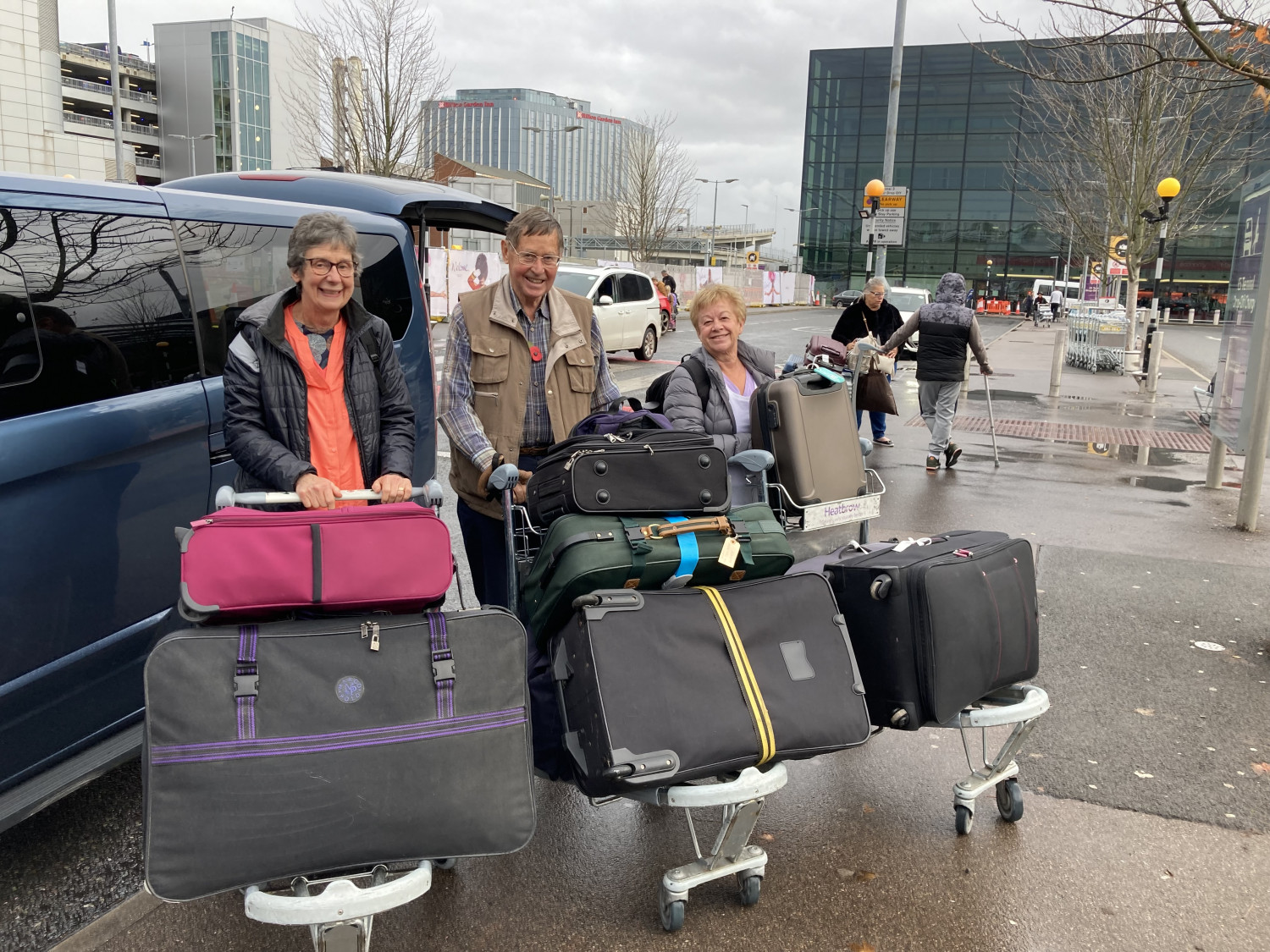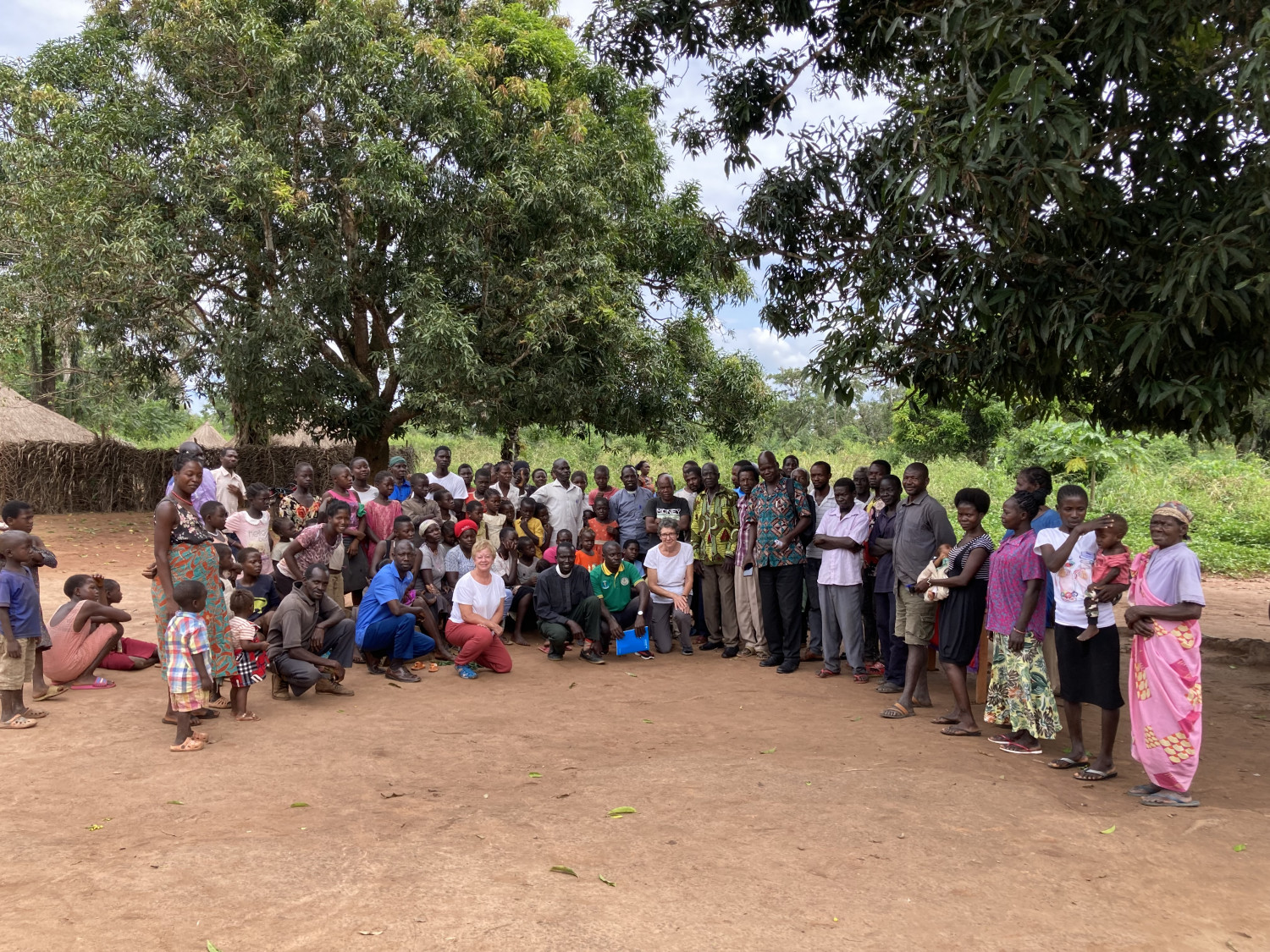
Can you imagine living in a country with some of the worst healthcare indicators in the world? Where you can’t access basic paracetamol and antibiotics or have an opportunity to ask a doctor, “I have these symptoms - what is wrong with me?”
A country where 75% of all child deaths are due to preventable diseases like diarrhoea, malaria and pneumonia, and one in ten children die before the age of five. Where preventable maternal deaths are sadly accepted as a way of life. After surviving years of conflict, South Sudan is a country where little progress has been made in terms of healthcare. But there is faith and hope for the future, however, which we discovered when three members of the Sudan Medical Link (SML) Team travelled to South Sudan in November 2022.
Dr Robin Sadler, Dr Karen Mounce and Mrs Anne Salter share their experience with us in this extract:
"We arrived in Yambio to an effusive welcome where people wanted to share their hope in God. The spirituality and faith they shared with us was dynamic, sometimes overwhelming, and really helped us to understand their meaning and purpose in life as well as their hope for tomorrow. It was humbling to discover that the Salisbury Sudan Medical Link was so highly regarded.
"The 16 health clinics supported by the diocese parishes, deaneries and individuals are truly making a difference. Drugs are reaching their destinations and lives are being saved as a result. Students who you are supporting to become clinical officers, nurses, midwives or laboratory assistants recognise that they have a God-given opportunity to train and serve in their communities. The training institute delivers a national curriculum and students have the opportunity sit national examinations.

"None of this is easy as the numbers of sick are high without safe water and mosquito nets, and, of course, some people cannot be treated because of a lack of resources. Sadly neonatal mortality rates and maternal deaths remain at one of the highest levels in the world. We saw and heard stories about deaths that would be preventable in our country, and our understanding of how they mourned in hope because of God’s faithfulness touched our hearts.
"An isolated clinic in Olo had been informed that doctors would be visiting, and over 100 people were patiently waiting to be seen when we arrived. We weren’t there to “doctor” as such, but clearly had to meet their expectations. A lesson we learnt in South Sudan is that no one goes home until everyone has been seen! Many of these patients had never seen a doctor in their entire life, with their only request being for an annual visit with a doctor/s. A diagnosis may be the only thing that the doctors could offer, but just knowing what is wrong and some simple advice really makes a difference.
"We were shocked once more that no mosquito nets were readily available for use, especially with the pregnant mothers and babies, and we were disappointed that clinicians had to diagnose without the kit that could help them.
"We left buoyed up by the faith and hope that we saw, along with the enthusiasm of students and clinical staff who were ambitious and excited for their often overlooked communities.
"We returned from South Sudan even more determined and better informed about what the Episcopal Church of South Sudan (ECSS) needs from us as partners in faith, and how by working together healthcare can really be improved across South Sudan."


